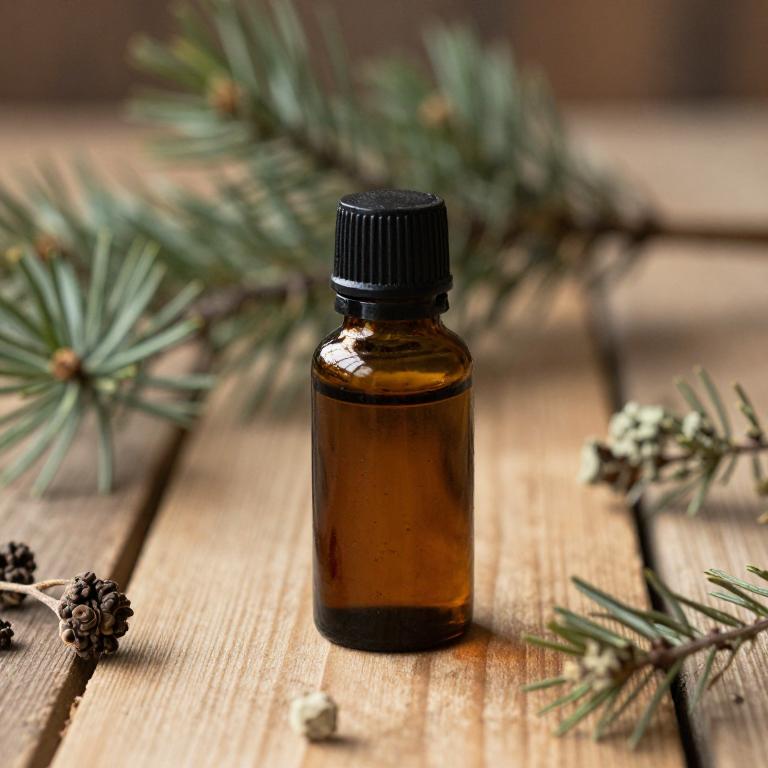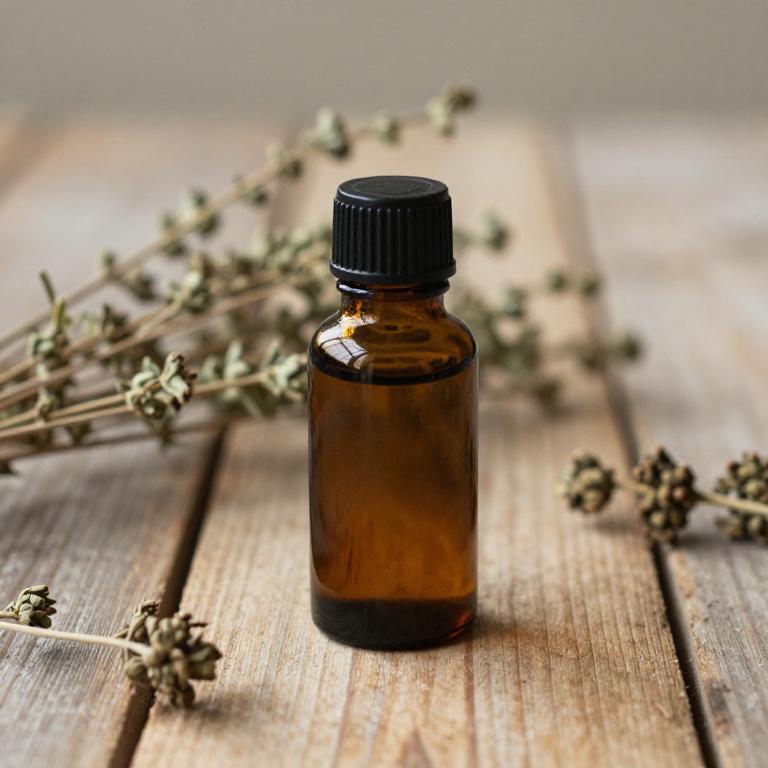10 Best Herbal Essential Oils For Bronchitis

Herbal essential oils, such as eucalyptus, peppermint, and lavender, are commonly used in natural remedies for bronchitis due to their anti-inflammatory and decongestant properties.
These oils can help ease breathing by reducing mucus buildup and soothing irritated airways when used in steam inhalation or diffusers. However, it is important to dilute essential oils properly before use to avoid skin irritation or respiratory sensitivity. While they may provide symptomatic relief, they should not replace medical treatment for severe or chronic bronchitis.
Always consult with a healthcare professional before using essential oils, especially for children or individuals with underlying health conditions.
Table of Contents
- 1. Eucalyptus (Eucalyptus globulus)
- 2. Thyme (Thymus vulgaris)
- 3. Scots pine (Pinus sylvestris)
- 4. Peppermint (Mentha piperita)
- 5. Ginger (Zingiber officinale)
- 6. English lavender (Lavandula angustifolia)
- 7. Rosemary (Rosmarinus officinalis)
- 8. Ceylon cinnamon (Cinnamomum verum)
- 9. Oregano (Origanum vulgare)
- 10. Black elderberry (Sambucus nigra)
1. Eucalyptus (Eucalyptus globulus)

Eucalyptus globulus, commonly known as the blue gum eucalyptus, is a widely used plant in aromatherapy and herbal medicine due to its potent essential oils.
The essential oil of Eucalyptus globulus contains compounds like eucalyptol, which have antimicrobial and anti-inflammatory properties that may help alleviate symptoms of bronchitis. When used in steam inhalation or diffused into the air, the oil can help clear nasal passages and reduce congestion, making it beneficial for respiratory relief. However, it is important to dilute the oil properly before use to avoid skin irritation or allergic reactions.
While it can be a supportive remedy, it should not replace professional medical treatment for chronic or severe bronchitis.
2. Thyme (Thymus vulgaris)

Thymus vulgaris, commonly known as thyme, is a popular herb used in the production of essential oils that have shown potential in supporting respiratory health, particularly in the treatment of bronchitis.
The essential oil of thyme contains powerful compounds like thymol and carvacrol, which exhibit antimicrobial and anti-inflammatory properties that may help reduce symptoms of bronchitis. When used in aromatherapy or diluted for topical application, thyme essential oil can help soothe irritated airways and ease breathing difficulties. However, it is important to use thyme essential oil with caution, as it can be quite strong and may cause skin irritation if not properly diluted.
As with any herbal remedy, it is advisable to consult with a healthcare professional before using thyme essential oil for bronchitis, especially for individuals with pre-existing medical conditions or those taking other medications.
3. Scots pine (Pinus sylvestris)

Pinus sylvestris, commonly known as Scots pine, produces an essential oil that has been traditionally used for its respiratory benefits, including support for bronchitis.
The oil contains compounds such as alpha-pinene and beta-pinene, which have anti-inflammatory and expectorant properties that may help alleviate bronchial congestion. Inhalation of pinus sylvestris essential oil can stimulate the respiratory system, promoting easier breathing and reducing coughing. It is often used in aromatherapy to soothe irritated airways and enhance lung function.
However, it is important to consult a healthcare professional before using essential oils, especially for individuals with pre-existing respiratory conditions.
4. Peppermint (Mentha piperita)

Mentha piperita, commonly known as peppermint, is a popular herb used in the production of essential oils that have shown potential benefits for individuals suffering from bronchitis.
The essential oil derived from peppermint contains active compounds like menthol, which can help soothe irritated airways and reduce inflammation in the respiratory tract. Its cooling and decongestant properties may help ease coughing and improve breathing in those with bronchial inflammation. Peppermint essential oil can be used in aromatherapy, steam inhalation, or as a topical application to support respiratory health.
However, it is important to use it in moderation and consult a healthcare professional before incorporating it into a treatment regimen for bronchitis.
5. Ginger (Zingiber officinale)

Zingiber officinale, commonly known as ginger, is a widely used herbal plant whose essential oil has been explored for its potential therapeutic benefits, including in the treatment of bronchitis.
The essential oil of ginger contains bioactive compounds such as gingerol and zingiberene, which possess anti-inflammatory, antioxidant, and antimicrobial properties. These properties may help reduce bronchial inflammation and mucus production, common symptoms in individuals with bronchitis. When used in aromatherapy or as a topical application, ginger essential oil may support respiratory health by promoting easier breathing and soothing irritated airways.
However, it is important to consult a healthcare professional before using ginger essential oil, especially for those with existing respiratory conditions or allergies.
6. English lavender (Lavandula angustifolia)

Lavandula angustifolia, commonly known as English lavender, is widely used in aromatherapy for its calming and anti-inflammatory properties.
Its essential oil contains compounds like linalool and linalyl acetate, which have been shown to help reduce respiratory inflammation and ease bronchial congestion. When used in steam inhalation or diffused in a room, lavender essential oil may support respiratory comfort and promote easier breathing in individuals with bronchitis. However, it should be used with caution and diluted properly, as undiluted essential oils can irritate the respiratory tract.
While lavender oil may offer some symptomatic relief, it is not a substitute for medical treatment and should be used under the guidance of a healthcare professional.
7. Rosemary (Rosmarinus officinalis)

Rosmarinus officinalis, commonly known as rosemary, produces an essential oil that has been traditionally used for its anti-inflammatory and bronchodilatory properties, making it a potential natural remedy for bronchitis.
The oil contains compounds such as cineole and camphor, which may help reduce airway inflammation and ease breathing difficulties associated with bronchial irritation. When used in aromatherapy or diluted for topical application, rosemary essential oil can support respiratory health by promoting clear airways and reducing congestion. However, it is important to consult a healthcare professional before using essential oils, especially for individuals with chronic respiratory conditions.
Overall, rosemary essential oil may offer supportive benefits for managing symptoms of bronchitis when used appropriately as part of a holistic treatment plan.
8. Ceylon cinnamon (Cinnamomum verum)

Cinnamomum verum, commonly known as true cinnamon, contains essential oils that have been traditionally used for their potential respiratory benefits.
These oils, derived from the bark of the cinnamon tree, contain compounds like cinnamaldehyde and eugenol, which exhibit antimicrobial and anti-inflammatory properties. When used in aromatherapy or as part of a chest rub, cinnamon essential oil may help alleviate symptoms of bronchitis by reducing mucus buildup and soothing irritated airways. However, it is important to dilute the oil properly and consult with a healthcare professional before use, especially for individuals with asthma or sensitive respiratory conditions.
While preliminary research suggests potential benefits, more studies are needed to fully understand its efficacy and safety for treating bronchitis.
9. Oregano (Origanum vulgare)

Oregano (Origanum vulgare) is a commonly used herb in traditional medicine, and its essential oil is valued for its potent antimicrobial and anti-inflammatory properties.
The essential oil of oregano contains high concentrations of carvacrol and thymol, which are known to help reduce respiratory inflammation and combat bacterial and viral infections. When used in aromatherapy or as a diffused essential oil, it may help alleviate symptoms of bronchitis by clearing nasal passages and easing breathing. However, it should be used with caution, as it can be irritating to the respiratory system in high concentrations.
It is often recommended to dilute the oil with a carrier oil before topical application or inhalation to ensure safety and effectiveness.
10. Black elderberry (Sambucus nigra)

Sambucus nigra, commonly known as elderberry, is traditionally used in herbal medicine for its potential respiratory benefits.
While elderberry is more commonly recognized for its fruit and syrup, its essential oils derived from the plant may offer anti-inflammatory and antiviral properties that could support respiratory health. These essential oils may help alleviate symptoms of bronchitis by reducing inflammation in the airways and potentially inhibiting viral activity. However, it is important to note that the use of Sambucus nigra essential oils for bronchitis should be approached with caution, as some parts of the plant can be toxic if not properly prepared.
Always consult with a qualified healthcare practitioner before using essential oils for medicinal purposes.